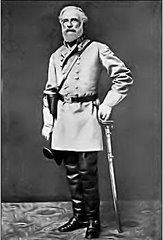You may recall the blog I wrote not long ago on disagreements within the church. I closed by adding a couple of blog references related to the subject, and said that I would soon try to write on my perspective on proper, Biblically-valid church worship. So I’m going to give this a shot. I’m not Pastor, but I think I may can bring in a few good points.
First off, I want to make clear, for the sake of the church universal, and for the sake of not making me seem hypocritical, I do not want to tear down any true Christian Denomination. I do, however, see that often different denominations worship in different ways, and I feel that although that is fine, there are some things that should be done in worship, and some things that should not be done in worship. I feel that some churches or denominations may have some things right and some things wrong, and for the sake of making a point, I will try to humbly point out good and bad things about different denominations and churches.
I think that first off, we should ask a few questions: “What is church worship?,” “What is the purpose of church worship?,” “What takes place at church worship?” These are three basic questions that I think could serve as a basis for learning about worshiping God.
One way people look at worship is as if it is their relationship with God being made public. This leads some into thinking that they can worship just however they feel is right, and there are no “rules and regulations” to worship. I think that this viewpoint can be both very helpful and very dangerous at the same time.
It would be bad for a Pastor, or any church leader to claim a specific code to worship God. There is not “code” for worshiping God, and it would be wrong to judge someone who may worship slightly different. A lot of worship is found in the heart, not the mind.
However, when hearing, “I want to worship my way” I am taken to Cain and Abel. I don’t remember everything about the story, but pretty much this is how my memory tells me (please correct me if I am wrong): Cain and Abel were told by God to make Him a sacrifice. God gave specific instructions on how to do it. Abel followed God. Cain did it his way. Cain was punished and Abel was rewarded. What this basically tells me is that some things God wants done a certain way, just for the sake of doing things His way. We may not understand why, but sometimes we should put our feelings aside to do whatever God says. Therefore, I feel that it can be dangerous to use the “worship my own way” method in worship.
This leads me into seeing two “competing” sides in church worship. I see the intellect and the emotion; the rational and the revival; the mind and the heart. However, I believe that both of these can be found to co-exist within each other in church worship. They are both important and should both exist. Jerry Hampton, in his essay “Rationalism and Revivalism” explains their co-existence by saying, “…The sum of all of this is this: Rationalistic systematizing results in emotionalistic preaching. The one ends where the other begins. Rationalism demands in every instance a conversion experience. Emotionalistic preaching brings about such an experience efficiently. The river of rationalism leads inevitably to the waterfall of emotionalism…”
Of course, this is written in such an intellectual way. In an individualist American nation, many people would hardly know what half of these words mean. From this, I see that emotionalism has it’s ends itself. A rationalistic conclusion can not be met by someone who only cares about emotions. If the “waterfall of emotionalism” is all that exist, then you free fall forever! There is not strong river to carry you upstream, and thus closer to God.
However, individualism can also be seen in an intellectual state of mind as well, and often is seen more in this state of mind then the emotionalistic state of mind. In fact, many individualists hold to the Utopian, intellectual, classic Northern-American literature, as opposed to the classic Romantic Southern-American literature. Individualism does have it’s good points in life, but in church worship, individualism should not be at the forefront at all.
This leads me to ask the original question, “What is church worship?” My best definition I can come up with in my own words would be this: “Church worship is the corporate covenant renewal service held by a group of the followers of God.” In church worship, we can not be individualist to ourselves whether through intellect or emotion. We need both, and one should not judge one church for not having one, when they don’t have the other.
To go both deeper and simpler into what church worship is, you could say that it is entering God’s house. We go to God’s house, not so much God coming to ours. This assertion could be held by most any Christian. This simply easily leads into our next two questions.
If we go into someone’s house, we are either going to give or to take away. If I call my neighbor down the street, I may ask to borrow some sugar, and then go down the street to get it. Or, my neighbor who is ill may call me, and ask that I bring her something she needs. When we go into God’s presence, we do both- give and take away. Sometimes, people may assert too much that the church goes into worship simply to give to God. However, we are ill and in need of His grace. We must come away from worship with our medicine. However at the same time, we have a responsibility as the church. When we come into church, although God does not need help, He uses us. Each week He gives us the strength to carry out His will next week, and come back to renew His covenant with us once again. In response to the grace He offers, we should out of instinct worship with emotion.
But we go into His House for more than just giving and taking. We visit. We don’t just go in, say hey, and give what we give, and take what He gives, and leave. We visit, and constantly give and constantly take through the worship. Therefore, there is Biblical guidelines to what we do and the order we do it in worship.
When I look at different churches, I see Pentecostal churches strengthened in their emotional worship to God. I see Presbyterian Churches, Roman Catholic Churches, and Episcopal Churches strengthened in the intellectual worship. We need both, but by themselves, each is insufficient. The intellect without the emotion is like a food unseasoned, and the emotion without the intellect is like the seasoning without the main food.
Perhaps this is why Pentecostal churches seem to have more church worshiping. God designated the Sabbath Day to be His day, in which we worship Him corporately. Wednesday night service is not Biblically invalid, but is not really directly mandatory, although we should be in constant communion with one another. If the emotion is all we have, we need more of it, and we need it more frequently.
In many “emotional” churches such as the various Pentecostal churches, I see God’s work at hand. Often, emotional experiences are true, and are often very helpful. God brings people to Him through emotional preaching and through emotional song, and Pentecostal churches do have a way with getting the personal side to the modern day human. I am not a Pentecostal, but I can’t say that God does not use Pentecostal churches. The emotion is part of a life with Christ.
However in some of these churches I see a trend as well, one not so good. Often, people tend to come and go easily. Later in his essay, Jerry Hampton says, “The revivalistic movements in the meantime, are enrgetic, constantly ‘winning souls for Christ.’ However, a realistic review reveals that much of this ‘soul winning’ is of the revolving door type. People have the experience, but once the newness of the emotional experience wears away, they wither and die. New people then move in to take their place. Sometimes, though, people come back and ‘re-dedicate’ their lives to Christ, only to fall away yet again.
“A good example of this was revealed by a sign I once saw on a local mega-church steeped in revivalist tendencies. The sign read “New Members for April – 76.” Now, if this was anywhere near typical, and if the majority of these people stayed the course, then in short time, that church would be overflowing and possibly starting new congregations. However, that particular church has stayed within its current walls for several decades now. It has a huge sanctuary that is not filled on a regular basis. The revolving door is spinning out of control.”
Hampton is right on his claims. The emotion wears off, and people go to different churches. It is like the parable Jesus said about planting seeds that sprout up, only to soon die away. However, according to Hampton, these churches have one trick up their sleeve. Hampton says, “However, revivalists have one trick up their sleeve to keep the game going. They simply keep intensifying the emotionalism. Once a person has an emotion based conversion experience, he needs to keep feeding the beast. More and more emotionalism will keep some coming back again and again. You just keep raising the stakes. The end result if that path is chosen can be seen in the world of Pentecostalism.”
So with this in mind, I think that a good form of worship can be done in the same form some tell us to pray, the ACTS formula. ‘A’ is for adoration; ‘C’ is for confession, ‘T’ is for thanksgiving, and ‘S’ is for supplication. When we enter into God’s presence, our first reaction should be to give praise to God, for who He is. Imagine a body of believers walking into the presence of God seeing His throne. We come with a call to worship. We stand at the gates of God, joyful and exceedingly glad, full of emotion. However, before we actually enter His presence, we must be cleansed. According to Rich Lusk, Pastor of Trinity Presbyterian Church in Birmingham, Alabama, and author of “Paedo Faith” and co-author of “The Federal Vision,” we must confess our sins to God before entering His House as we would “wipe our feet at the welcome mat when we enter someone’s house.” After we confess our sins, we are reminded of God’s grace, once again leading us into thanksgiving to God. This time, it is not for just who God is, but what He has done- saved us!
When we enter His presence, we learn from His word (Sermon), and give our gifts to God (tithes and offerings), we lift our petitions up to God (supplication and prayer), and we commune with God in meal (Lord’s Supper). Often, when we visit someone, we eat with them. We do with Jesus Christ, He has given us the Lords’ Supper. I also find it interesting that often throughout the Bible, the gathering of saints, the lifting of voices, the learning of God’s word, prayer, and the breaking of bread are all together. Acts 2:40-44 reads, “And with many other words he testified and exhorted them , saying, ‘Be saved from this perverse generation.” Then those who gladly received his word were baptized; and that day about three thousand souls were added to them. And they continued steadfastly in the apostles’ doctrine and fellowship, in the breaking of bread, and in prayers. Then fear came upon every soul, and many wonders and signs were done through the apostles. Now all who believed were together and had all thinks in common,…” In this, we see both emotionalistic preaching, and yet a general approach to worship with the gathering of saints in common prayer, learning from God’s word, and the breaking of bread.
Of course, in leaving God’s presence, we are called, this time not into worship, but into the world. We are called to fulfill the great commission, which is what Peter was doing there in Acts. This calling, is a benediction, you could say. Once at Clayridge Baptist Church I noticed a sign posted facing those who would be leaving church, that said “You now into the great commission.” We “go” throughout the week, and on the Lord’s Day, we renew our covenant with God, giving Him praise, glory, honor, thanks, and receiving His grace.
I think that the emotion should be present in worship. I also feel like we should worship with all that we are- are minds, hearts, and even our physical bodies, which I think Pentecostals are right on. The lifting of hands, the clapping of hands, and the lifting of voices are mentioned over and over in the Bible. Even dancing is mentioned often. The way we do things, even with our physical bodies is important. Often, intellectual Calvinist preachers tend to take focus off of the heart and body, and put it on the mind. Often, some will put emphasis on physical bodily motions such as the lifting of hands, kneeling, etc., but put this only based off of intellectual rituals. I do not feel as if intellectualism is a bad thing, or as if basing body motions off of certain intellectual ritual ways in bad, but if this is based only off of intellectual rituals, and not off of common emotion to God, then it is pointless. Jerry Hampton in his essay talking about this form of Calvinism said, “The Calvinist might argue that since all is in God’s hands, the emotionalistic ferver of the preaching is not so important. Simply a pure preaching of the Word of God will bring about true conversions. But, this is simply the last gasp of the rationalistic tendency before the revivalist waterfall. Held consistently, a single point in time conversion experience (which is required for a rationalistic single puzzle piece justification) will result in more and more pressure to reach the emotions of men. Perhaps the best among Calvinist preachers will hold out and continue to attempt to reach the intellect with the word of God. However, while they are doing so, their churches stifle. The revivalistic movements in the meantime, are enrgetic, constantly ‘winning souls for Christ.’……..If their particular congregation believes consistently the rationalistic, systematic, justification as a single point in time phenomena, yet they do not preach that way, then they are simply being inconsistent with their presuppositions……. I witnessed the latter first hand once while attending a particularly rationalistic Reformed congregation. The Lord’s Supper was ‘celebrated’ at the conclusion of the worship service. However, it was a very somber, reflective experience. The major theme seemed not to be the congregation’s communion with the Lord and with each other, but instead to be several minutes of ‘naval gazing.” The power of the sacrament, apparently, was not to be found in God’s sovereign power working through the elements and activity of the celebration, but through each individual’s sovereign power and ability to look within himself and find…something. What he was to find, I am unsure. But it almost seemed taboo to look anywhere outside oneself, or, heaven forbid, to actually have on a happy face. Again, they may retort that what I am saying is a caricature of what was really going on. I respond by saying that appearance is a reflection of reality. Whether they realized it or not, this is what was happening…….Many reformed theologians would deny that this is their belief. However, it is their practice, and if they are to be consistent to their experiential presuppositions, they have to admit that this belief is consistent with that. This, I believe, is what Reverend Lusk was driving at. This is a major cause in the decline of infant baptism. When the reformed-minded pastor follows rationalism to its end, they either become revivalists, or the revivalists in our midst pick up where they leave off. Either way, the efficacy of the Sacraments is denied.”
Okay, I don’t know if you were able to bear with me that long, but if you have made it here, then thank you for you time in reading this. I don’t know how well my points came across or not, but I at least tried. Worship is an important topic to be studied, because it is for God, and anything for God is important. Also, please remember, that this was not at all meant to be negative to any denominations or beliefs, but showed the good and bad in each, and showed my opinion on how true Christian worship should be structured. For more blogs related, you may could look at the list below:
Rationalism and Revivalism by Jerry Hampton, http://thehampster.blogspot.com/2007/02/rationalism-and-revivalism.html
The Church and Politics by Jerry Hampton, http://thehampster.blogspot.com/2007/02/church-and-politics.html
Justification by Faith by Peter Leithart, http://www.leithart.com/archives/003081.php
Preaching in Liturgy by Duane Garner, http://www.hornes.org/theologia/content/duane_garner/preaching_in_the_liturgy.htm
Monday, June 18, 2007
Subscribe to:
Post Comments (Atom)










No comments:
Post a Comment